What is the Difference Between Consent Orders, Parenting Agreements & Custody Agreements in North Carolina?
Our Mooresville child custody attorneys at Daly Mills Family Law know that when it comes to splitting your children’s time between parents, there is a lot of confusion about the legal standards and overall process.
Often, the confusion simply comes from the unknown. If you have never been divorced, you may have no idea what to expect from the child custody process. And, unfortunately, both parents tend to speculate about what they are entitled to, which can muddy the waters further.
Our Mooresville divorce attorneys can help you understand our North Carolina child custody laws, and how they apply to your unique circumstances, so you can make informed decisions about your children’s futures.
That begins with understanding the differences between consent orders, parenting agreements, and custody agreements. Here is what divorcing parents need to know.
What Are Consent Orders in North Carolina?
Consent orders are private custody agreements determined between parents that are submitted to the courts for approval. Once they are signed by a judge, they become a court-ordered custody agreement.
Parents may also submit proposed consent orders individually when they cannot agree on each custody factor.
Consent orders may include details on where the children will live, how they will split their time with the other parent, and child support payment agreements.
If you and your spouse can determine child custody matters on your own, discuss your goals with your family law attorney to ensure no detail is left to chance, and that your rights are protected throughout the process.
What are Parenting Agreements in North Carolina?
Parenting agreements detail all the same terms of child custody, but through private or court-mandated mediation. Your family law attorney should be involved in each step of the mediation process, so the agreement is reviewed by prioritizing your and the children’s best interests.
The difference between consent orders and parenting agreements is that parenting agreements cannot cover child support. That detail will have to be determined separately.
The parenting agreement becomes a court order once a judge signs the final paperwork.
What are Child Custody Agreements in North Carolina?
A child custody agreement outlines the responsibilities and duties of each parent going forward.
When parents cannot determine each detail of the custody agreement outside the courtroom, a judge will make the decisions for them during litigation. Court-ordered custody may be the only option when one parent is making unreasonable demands and refuses to compromise.
Unlike parenting agreements, custody agreements can address child support, and includes other important details like:
- Whether parents will share joint legal custody, or one will have sole legal custody, which outlines who will make decisions about education, medical issues, extracurricular activities, and religious participation.
- Whether parents will share joint physical custody, or one will have sole physical custody.
- A visitation schedule for the non-custodial parent.
- Transportation and exchange details.
- Parent-child communication.
Courts encourage parents to include as much detail as possible in their custody agreements to avoid confusion and stress later, including any potential disagreements and how they will be managed going forward.
Our Mooresville family lawyers can help you outline your complete child custody goals and pursue the best outcome for your unique cases.
Contact Our North Carolina Family Law Attorneys Today for a Consultation
At Daly Mills Family Law, our child custody attorneys focus on each of our client’s unique legal needs, and that begins by keeping our caseloads small.
Each time you contact our office, you will have access to attorneys and support staff who can answer your questions, allay your fears, and develop practical legal solutions that make sense.
It’s a jungle out there. Protect what’s yours. Contact our Mooresville family law attorneys today at 704-878-2365 or online to develop a partnership that produces actual results.




